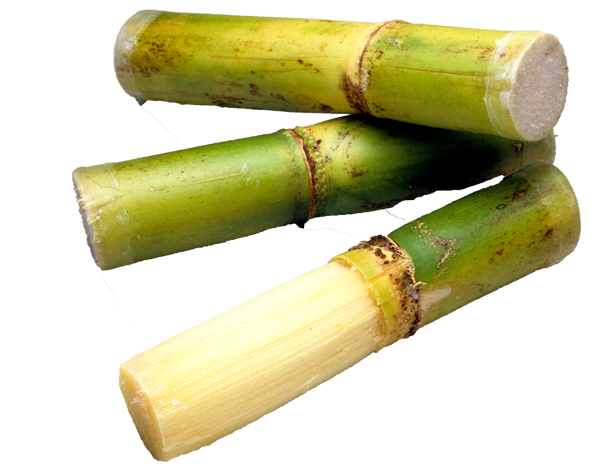Sugar and Cane: A Guide to Their Nutritional Benefits and Uses
Sugar and Cane: A Guide to Their Nutritional Benefits and Uses
Blog Article
Why Walking Cane Sugar Processing Chemicals Are Critical for Modern Sugar Refining
The function of cane sugar processing chemicals in modern-day sugar refining can not be overstated, as they are important to boosting both the efficiency of removal and the general quality of the end product. Representatives such as phosphoric acid and specific flocculants are used to eliminate pollutants, causing sugar that not only meets customer assumptions but likewise follows market standards. The implications of these chemicals extend past top quality, touching upon market characteristics and environmental factors to consider. sugar and cane. This elevates important concerns regarding the sustainability of such methods and their influence on the future of sugar production.
Role of Handling Chemicals
The efficacy of walking cane sugar handling pivots dramatically on the critical application of handling chemicals. These chemicals play a crucial duty in boosting the effectiveness and quality of sugar extraction and refining. From the initial stages of juice extraction to the last filtration actions, processing chemicals facilitate various essential procedures.
In the removal phase, chemicals such as phosphoric acid and calcium hydroxide are employed to maximize the information process, helping to get rid of contaminations and suspended solids from the walking cane juice. This not just enhances the yield yet likewise guarantees the quality of the end product. In addition, representatives like flocculants help in the rapid settling of contaminations, consequently streamlining the overall procedure.
As the processing advances, chemicals are made use of in decolorization and condensation stages. Turned on carbon and ion exchange resins offer to get rid of color and smell, making sure that the refined sugar satisfies customer top quality criteria. Ultimately, the duty of processing chemicals extends past operational effectiveness; they dramatically influence the sensory characteristics of the last product, adding to market competitiveness. Hence, the precise option and application of these chemicals are important for attaining optimal results in cane sugar processing.
Key Kinds of Chemicals
Walking cane sugar handling depends on a selection of key chemicals that help with each stage of manufacturing. These chemicals play vital duties in making clear, bleaching, and purifying the sugar drawn out from walking cane.
One primary category of chemicals includes flocculants, such as polyacrylamide, which aid in the information procedure by advertising the gathering and settling of contaminations. Additionally, calcium hydroxide is commonly used to counteract level of acidity and aid in the removal of non-sugar elements.
Whitening agents, such as activated carbon and sulfur dioxide, are used to decolorize the syrup, leading to a more clear end product. These chemicals help eliminate color compounds that may affect the sugar's look and bankability.
Additionally, phosphoric acid acts as a pH regulator during the processing phases, ensuring ideal conditions for the enzymatic tasks entailed in sugar removal and filtration.
Other important representatives consist of edta (ethylenediaminetetraacetic acid), which chelates metal ions that can militarize undesirable responses, and salt hydroxide, which assists in pH control throughout the refining procedure. Collectively, these chemicals enhance efficiency and make certain a high-quality walking cane sugar product.
Advantages for Sugar High Quality
Typically overlooked, the usage of particular handling chemicals dramatically boosts the general quality of cane sugar. These chemicals play a critical role in refining procedures, guaranteeing that the last product satisfies strict sector requirements for pureness and taste.

Furthermore, processing chemicals assist in attaining a regular granulation and appearance, which are essential for customer acceptance. By regulating the condensation process, these chemicals guarantee that the sugar crystals form uniformly, bring about an extra enticing product that dissolves well in numerous applications.
Additionally, using these chemicals can enhance the shelf life of walking cane sugar by minimizing moisture absorption and microbial development. Overall, the tactical application of processing chemicals is vital for delivering high-quality cane sugar that fulfills consumer expectations and market demands.
Ecological Effect Considerations

Moreover, the energy-intensive nature of sugar refining, worsened by chemical usage, commonly leads to boosted carbon emissions. This adds to climate modification and increases problems regarding the sustainability of current refining practices. Furthermore, the sourcing of these chemicals may include methods that endanger biodiversity, such as monoculture farming, which decreases the resilience of agricultural communities.

To mitigate these impacts, sugar refiners are increasingly exploring lasting choices and taking on ideal methods that minimize chemical usage. Implementing strenuous ecological administration systems can help make certain that the go right here refining procedure lines up with environmental criteria and advertises biodiversity. Eventually, a well balanced technique that prioritizes both sugar top quality and ecological stewardship is vital for the long-term stability of the sugar market.
Future Trends in Refining
As the sugar sector comes to grips with the environmental challenges connected with conventional refining approaches, ingenious approaches are arising to enhance both performance and sustainability. One considerable trend is the fostering of green chemistry concepts, which focus on the usage of non-toxic, eco-friendly processing chemicals. This change not just reduces ecological effect yet additionally addresses customer demand for cleaner manufacturing techniques.
An additional promising growth is the implementation of sophisticated filtration technologies, such as membrane layer separation and adsorption processes. These methods improve the clearness and top quality of the sugar while decreasing the quantity of wastewater generated during refining. Furthermore, the assimilation of digital innovations, consisting of IoT and AI, is transforming operational effectiveness by making it possible for real-time monitoring and predictive upkeep, therefore minimizing resource waste.
Additionally, the usage of by-products from sugar refining, such as bagasse and molasses, is getting traction. These products can be exchanged biofuels or value-added products, contributing to a circular economic climate within the sector. Jointly, these trends signal a shift towards more lasting methods that not just boost functional efficiency but additionally straighten with worldwide sustainability objectives, making certain the future viability of sugar refining.
Verdict
Walking stick sugar processing chemicals are necessary in modern-day sugar refining, substantially boosting the performance and top quality of sugar removal. The strategic usage of these chemicals not only improves the purity and taste of the end product but likewise makes sure constant condensation and structure. As the industry significantly focuses on sustainability, the fostering of environmentally-friendly handling agents is likely to form future patterns in refining, eventually resulting in greater top quality items and expanded service life for consumers.

Eventually, a well balanced method that focuses on both sugar top quality and environmental stewardship is necessary for the lasting practicality of the sugar sector.
Cane sugar handling chemicals are crucial in modern sugar refining, substantially boosting the efficiency and high quality of sugar removal.
Report this page